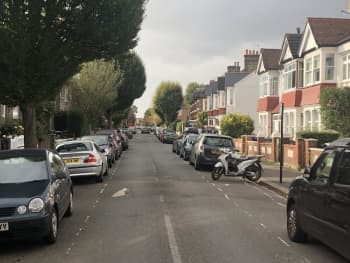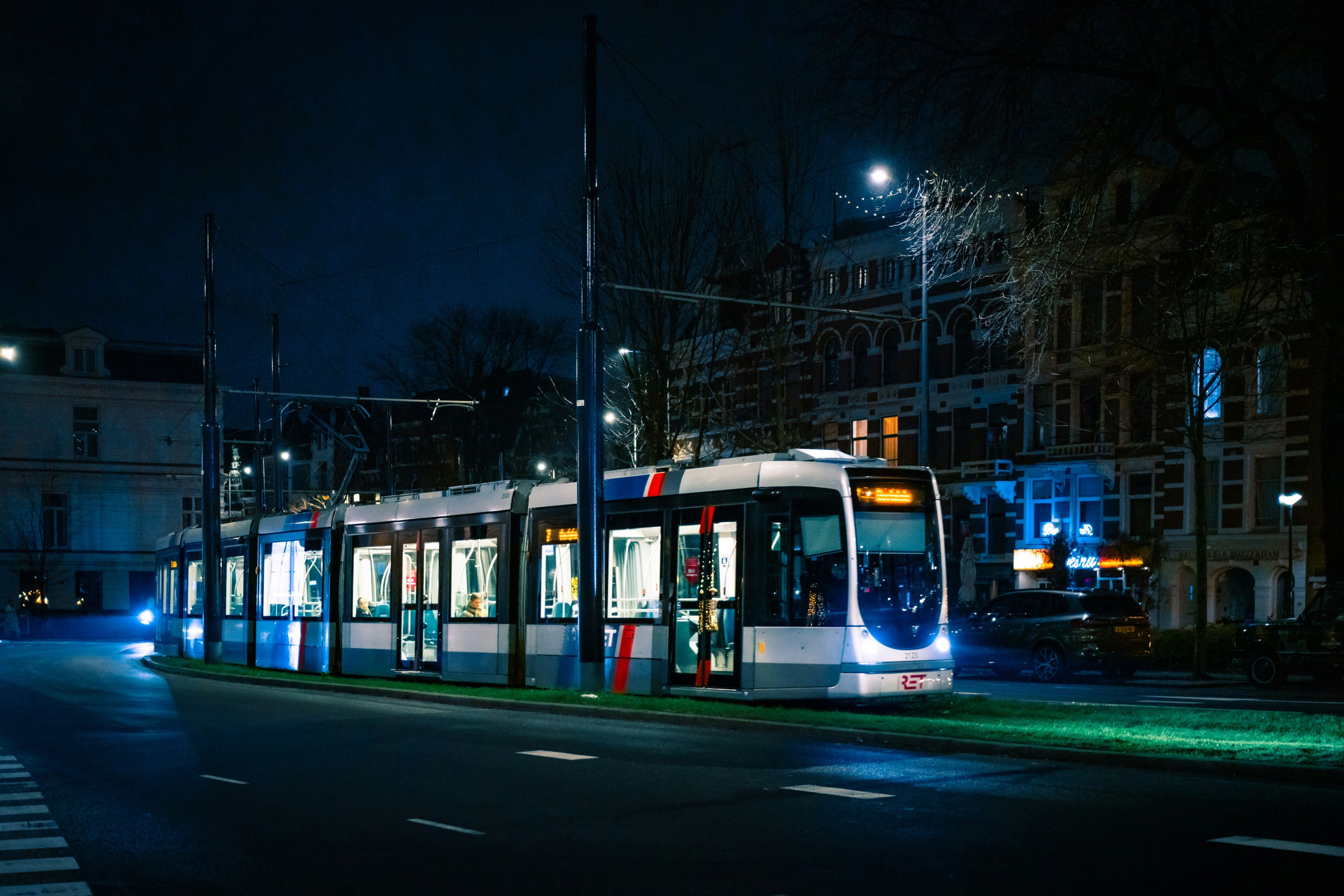Why don't we have sustainable transport in London?
UCL’s Professor Robin Hickman exposes the hidden hurdles holding back London’s transport transition
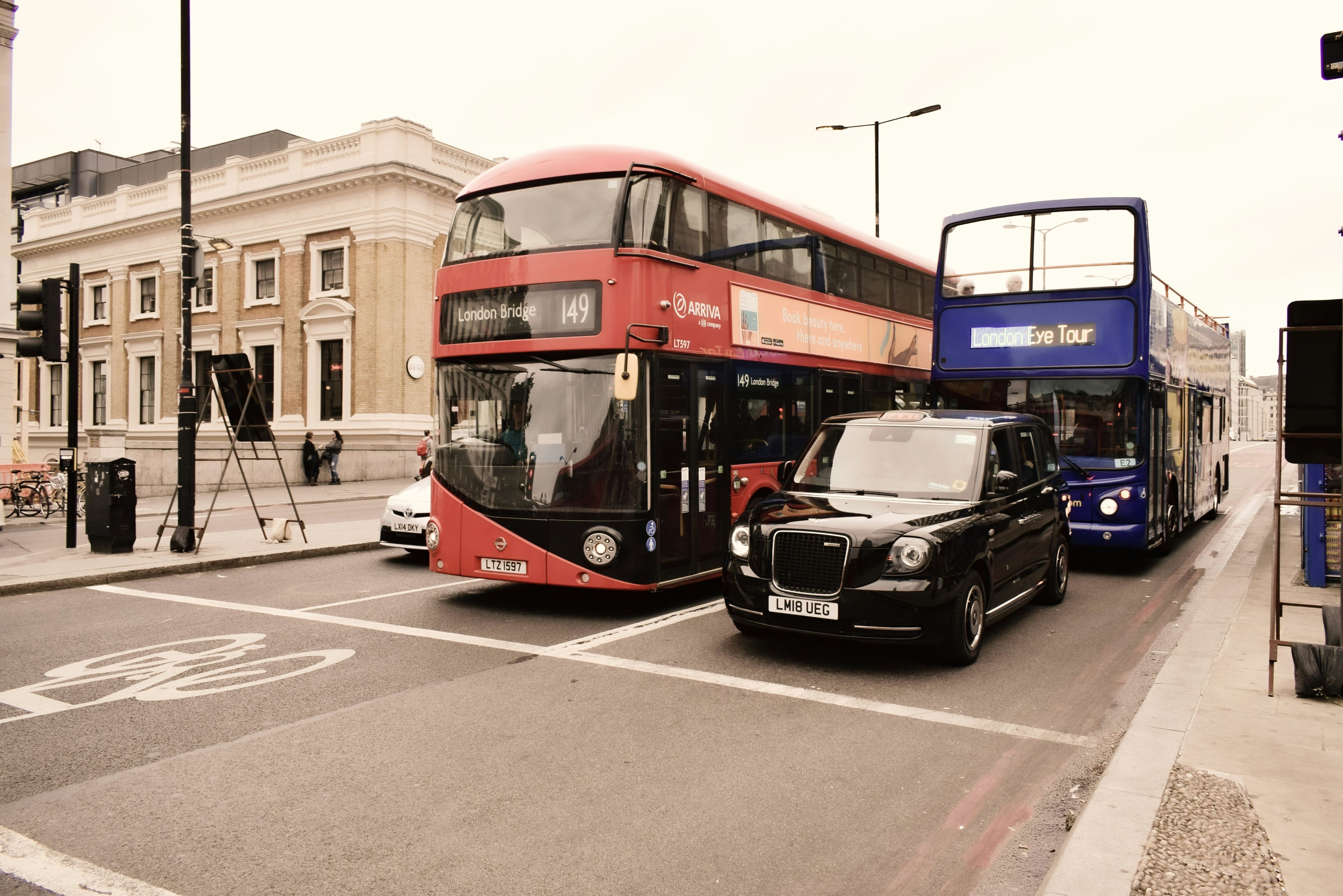
What is the ‘truth’ of London’s transport planning?
After a career in consultancy and research, mostly developing strategies and pathways to carbon-free, socially equitable urban mobility, Robin Hickman decided to investigate the underlying reasons why we still fail to take those paths.
From Copenhagen to Chongqing, Rob has immersed himself in the politics and culture of transport planning in 20 major cities. In his work, Rob borrows the discursive concepts of truth, power and regimes of truth from philosopher Michel Foucault to better explain how different contexts shape distinctly different understandings of transport planning.
“How people perceive the truth of transport planning in London would be very different to the way it’s perceived in the Netherlands, or a Chinese city, or a South American one,” Rob says.
“In London, a planner might be looking for marginal measures to increase walking and cycling that might be acceptable to the resident population. Whereas in Utrecht, where 60% of trips to the city centre are by bicycle, you’re looking for ways to consistently improve the cycling experience and get that proportion closer to 100%.
“Meanwhile, in Bogotá or Medellin, you’d be targeting transport planning at low-income neighbourhoods, trying to improve activity participation with access to the rapid transit bus system.”
“There’s a big disconnect between local transport strategic aims, and what actually gets built.”
Rob’s recently published book, ‘Discourses on Sustainable Urban Mobility’ (published by UCL Press in November 2025) draws extensively on both Rob’s research and theories of discourse analysis, exposing how issues of truth, power, regimes of truth, and wider, become entrenched over time, stymying progress. In the book, Rob outlines the deeper implications London.
“The regime of truth of motorisation has become generally sanctioned, and the actions of the transport planners and politicians are not effective... in shaping a different reality. Indeed, the techniques and procedures of transport planning are helping to shape what is viewed as true.”
West Ealing South Low Traffic Neighbourhood (LTN)
There was an attempt to reduce car usage in this area (pictured), and to improve walking and cycling. But, it failed and was withdrawn, as some of the local population would not support.
“Transport planning needs to be able to more effectively deliver these projects.”
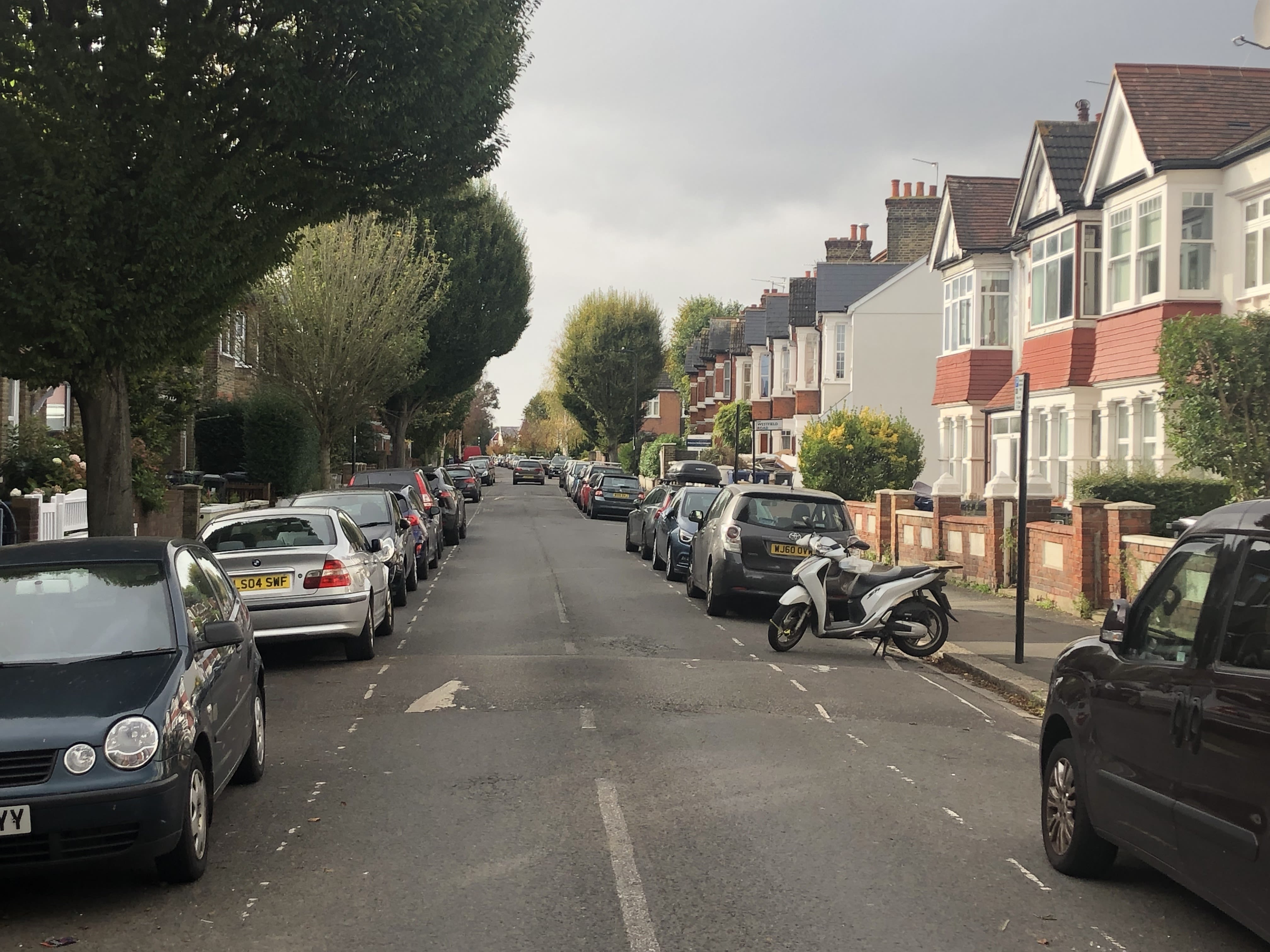



Going beyond the limitations of cost-benefit analysis
Rob explains how these systemic barriers are constructed.
“Transport planning’s been developed over the last 50 years or more, initially to develop the highway network. A lot of the processes are useful if you want to widen motorways and main roads, but they’re not very applicable to cycling, active travel or public transport.
“As it’s currently set up, transport planning prioritises and invests in projects in busy urban areas rather than deprived urban areas. Procedures such as cost-benefit analysis skew the process in favour of highways and certain areas, too.
“Taking Manchester as an example, we all know as transport planners that Manchester needs a more extensive suburban rail system and cycle network to connect with neighbouring towns.
“But if you’re only thinking about usage relative to cost, the most cost-effective process is to widen the highway system, because you’d have a lot of people using it relative to the cost. But this overlooks environmental and social objectives for transport.
“So there’s a big disconnect between local transport strategic aims, and what actually gets built. We build a lot of road schemes, a little bit of public transport, and hardly any cycling.”
Photo by Michael Fousert on Unsplash
Photo by Michael Fousert on Unsplash
Transport as a culture war battleground
In a chapter in his book titled ‘Subjectivity’, Rob explores how the discourse around sustainable transport planning increasingly reflects issues of public debate and contestation.
Using the example of a low-traffic neighbourhood (LTN) project in West Ealing South that was eventually cancelled, Rob draws valuable insights from the failed process.
“There have been several successful LTNs in London, so it’s important to point out that there are many different experiences of implementation.
“The West Ealing South LTN was rushed through. There was very little participation – the residents were only given a week’s notice to the project, so unsurprisingly, a few of them didn’t like it.
“In particular, a vocal minority demonstrated, including through social media, hijacking the process and blocking the project. So it failed, and the LTN measures were taken away.”
Rob attributes the stalling of progress to flaws in the planning process.
“You often only hear certain people through the process – and it's often the people who are more antagonistic. Even in West Ealing, it was only around 20% of people who didn’t like the LTN.
“You end up with a misplaced view of local support. People who are working or studying often don’t have time to contribute to the process, so their views aren’t heard.
“The politicians then get scared by the local opposition to the plans, and withdraw support for the process. In West Ealing, they didn’t support it well, and I don’t think the transport community supported it well either.”
“You often only hear certain people through the participatory process... people who are working or studying often don’t have time to contribute to the process, so their views aren’t heard.”
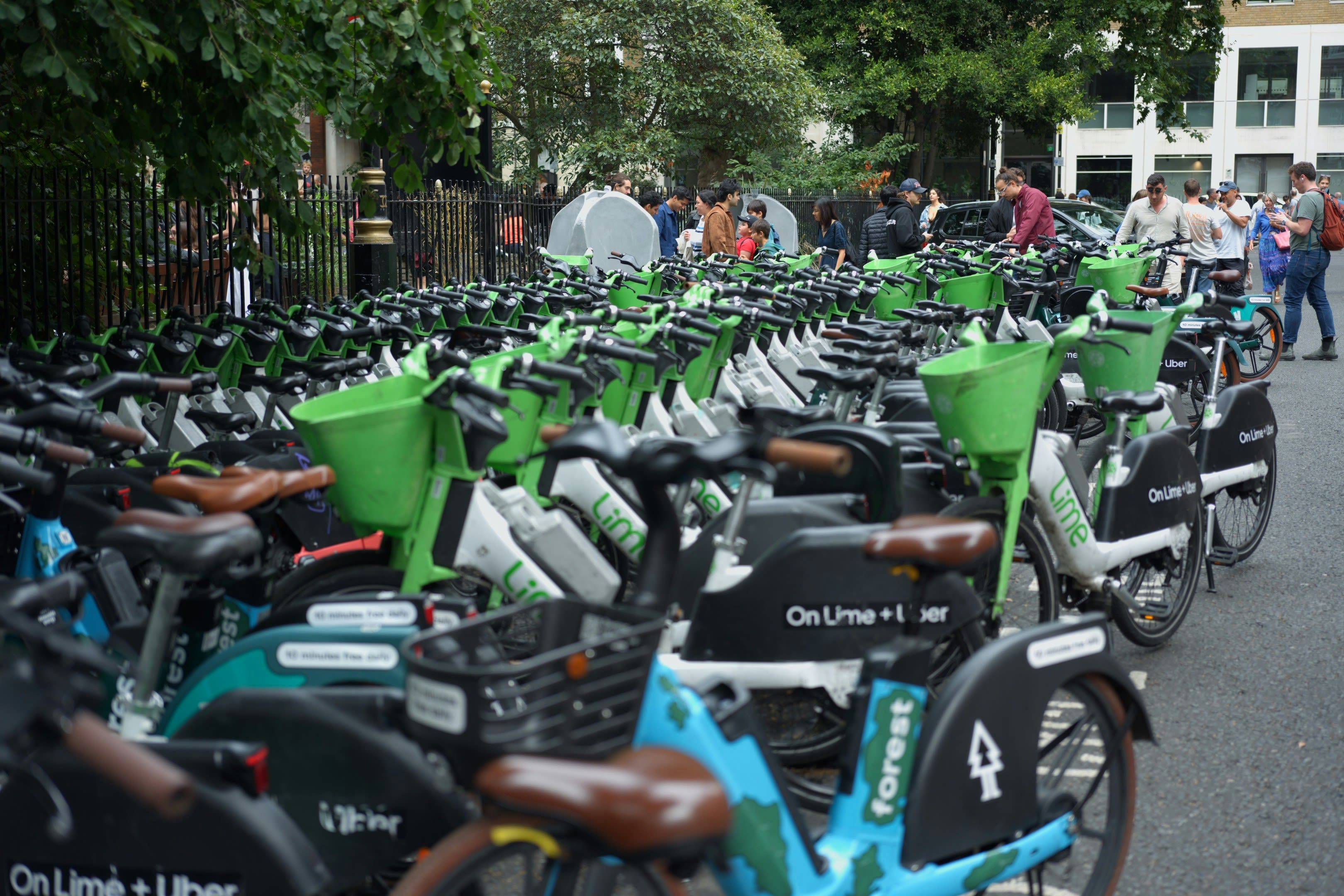
Giving people the power to shape transport networks
Rob’s research makes it clear that better deliberative processes are crucial, to help planners build the consensus and political will needed to meet challenging climate targets. Providing the next generation of transport planners with a comprehensive understanding of these processes (on courses such as UCL’s Transport and City Planning MSc, of which Rob is the Director) is a logical next step.
“At the moment, participatory processes in transport planning are very limited. It’s a case of, ‘here’s the project, which route alignment do you want?’ And that’s broadly it.
“What’s needed is a discussion right at the very start of the project, to find out what the population thinks the local problems are. Then ask them to match those to wider societal objectives and climate targets, and make sure everyone’s in agreement on the problems.
“Then you can look at the objectives – what are we trying to deliver? What’s the purpose of transport planning in this area? How can we make travel more equitable? How can transport better support economic goals?”
Next, Rob and his colleagues intend to apply their research findings to challenge current transport planning projects happening in London, such as the Lower Thames Crossing in East London, or the new housing developments around Battersea Power Station which have drawn criticism for their unaffordability.
“With this work, we’re trying to get people to critically engage with transport planning.
“At the moment, we’re just churning out the same projects year after year – and then we’re surprised that carbon emissions don’t reduce, or that it becomes more and more difficult to travel if you have a lower income, or if you’re from a certain area.
We have to be interested in these issues – transport planning can much more effectively contribute to public policy goals. This research, the book, they’re really just ways we’re trying to introduce that type of critical reflection on transport.”
About the author
Professor Robin Hickman
Professor of Transport and City Planning
The Bartlett School of Planning
The Bartlett in London: celebrating 200 years of UCL
This story is part of the Bartlett in London series from the UCL Bartlett Faculty of the Built Environment.
In celebration of UCL's bicentenary in 2026, this series of stories explores our impact on the built environment of London – from creating healthier and more sustainable living, to supporting local communities and documenting London’s rich history.
Produced with support from the UCL Innovation and Enterprise Faculties Innovation Fund.
Learn more about transport and city planning
Our Transport and City Planning MSc blends cross-disciplinary insights on transport and urban planning at The Bartlett School of Planning. Find out more about our unique hands-on learning environment guided by urban planning experts and practitioners at the forefront of our field.
Story produced by All Things Words
© UCL The Bartlett 2025
This story was produced with support from UCL Innovation and Enterprise Faculties Innovation Fund.


